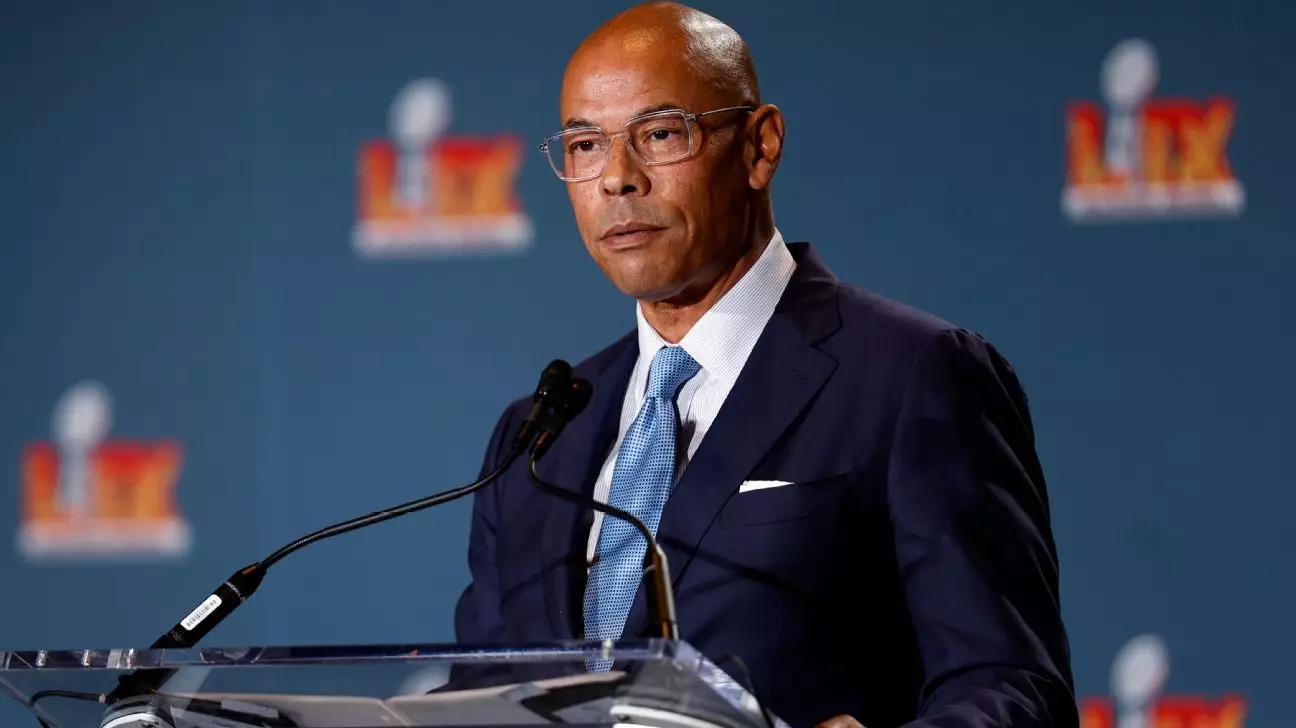In a landscape often marred by disputes behind closed doors, the NFL Players Association (NFLPA) has publicly reaffirmed its allegiance to Executive Director Lloyd Howell Jr., amid reports of internal conflicts and potential ethical concerns. The union’s executive committee issued a statement vehemently denying rumors suggesting they questioned Howell’s leadership or pressured him to resign. This staged display of solidarity is a strategic move to maintain stability within the organization. However, beneath this veneer of unity lies a turbulent undercurrent—questions about transparency, conflicts of interest, and governance are quietly simmering, beckoning deeper scrutiny.
The union’s declaration emphasizes a deliberate, cautious approach to investigating the issues reported by ESPN, signaling their intent to avoid hasty judgment. Such measuredness, while commendable in principle, raises questions about whether it’s sufficient to address the apparent conflicts of interest or whether it merely masks an organizational reluctance to confront uncomfortable truths. Maintaining confidence in leadership during times of controversy requires more than words; it demands actionable transparency and accountability that honestly confronts allegations, rather than dismisses them prematurely.
Conflicts of Interests: A Shadow Over Leadership Integrity
Central to the controversy is Howell’s reported role as a paid, part-time consultant for the Carlyle Group, a prominent private equity firm with ventures aimed at NFL franchise ownership among other interests. The revelation provoked concern over potential conflicts of interest—especially given the union’s fiduciary duty to its players. The union’s lawyer purportedly advised Howell to consider resigning from Carlyle to mitigate any appearance of impropriety, yet Howell declined, citing only a vague concern expressed by a “union employee” and signaling a measured approach to resolve the situation.
This scenario underscores the importance of institutional integrity and the need for clear boundaries between union leadership’s outside business dealings and their responsibilities to the players. When a union leader maintains affiliations that could influence decision-making or create perceptions of favoritism, it erodes trust. The NFLPA’s swift rebuff of the rumors seems less about transparency and more about damage control. True leadership should demand full disclosures and conflict mitigation strategies, especially when such affiliations involve entities seeking potential influence over franchise ownership—an arena where conflicts of interest could directly impact players’ livelihoods and rights.
Secrecy and Suppressed Information: Eroding Player Confidence
The controversy extends beyond Howell’s outside commitments into the secretive handling of critical arbitration decisions. The January 14 arbitration ruling, which found league executives had encouraged teams to limit guaranteed player salaries, was concealed from players through confidentiality agreements. This secrecy raises profound questions about the union’s commitment to transparency and its responsibility to keep players fully informed about decisions that directly impact their contractual rights and negotiating power.
The arbitration’s details, kept under wraps until leaked via a podcast, reflect a concerning pattern of withholding information. In a union’s core responsibility is to advocate openly for its members, ensuring they are aware of legal and contractual nuances that affect their earnings and bargaining leverage. When such vital information is concealed, it propagates mistrust and questions whether the union is functioning in its members’ best interests. The union’s attempt to appeal the arbitration ruling further emphasizes the contentious nature of the decision, but whether this effort will translate into genuine transparency or simply serve as a political statement remains to be seen.
The Path Forward: Promises of Engagement and Reform
The decision to appeal the arbitration outcome and the appointment of an external legal expert to review Howell’s activities suggest a union grappling with crises of credibility. It signifies an acknowledgment of the need for internal reform and a willingness to scrutinize leadership rigorously. Nonetheless, these steps also serve as a double-edged sword—while they may restore trust if handled transparently, superficial investigations or delayed disclosures risk further eroding confidence.
In the broader context, this turmoil presents the NFLPA at a crossroads. Leadership must demonstrate unwavering commitment to transparency, conflict resolution, and safeguarding players’ rights beyond rhetoric. The union’s ability to do so will determine whether it remains a respected advocate or collapses under the weight of secrecy and internal discord. The true challenge lies not only in resolving these current issues but in establishing a culture of openness that can withstand future scrutiny—a tall order considering the inherently complex nature of union governance in a high-stakes league like the NFL.
This episode, while troubling, could serve as a catalyst for meaningful reform if approached with genuine introspection and accountability. The integrity of the NFLPA hinges on its capacity to confront uncomfortable realities head-on, rather than glossing over them with dismissive statements. Only then can it restore its credibility and truly serve the interests of its members—professional athletes whose careers and livelihoods depend on a union that embodies transparency, fairness, and unwavering commitment to their rights.

